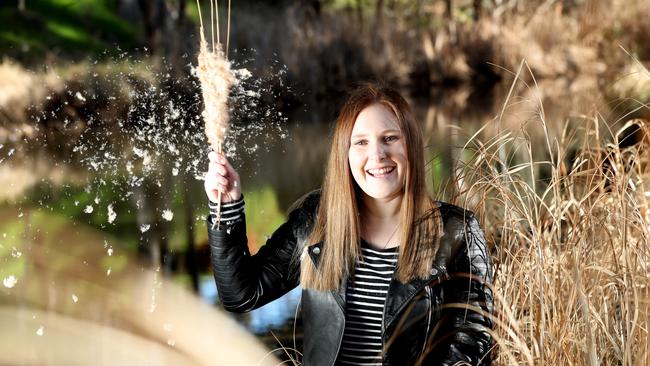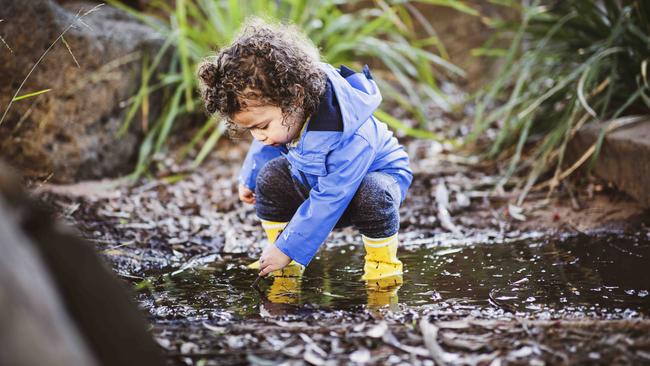PhD candidate tests microbes found in nature to reduce disease and allergies
New research shows how important it is for people to expose themselves to nature and strengthen their immune system.
Playing with mud, digging in the dirt and rolling in the grass can restore the healthy balance of microbes on our skin and airways, research suggests.
University of Adelaide PhD candidate Caitlin Selway, 23, of Gawler is exploring the “Microbiome Rewilding Hypothesis” as a way to reduce the prevalence of hay fever, allergies and other problems caused by overactive immune systems such as Type 1 diabetes.
“The idea is not to be afraid of microbes, because they are very beneficial to us and they serve a big important role in our health,” she said.
“With more exposure, hopefully we can actually start reducing disease.”
Ms Selway studied how exposure to urban green spaces within Australia, the United Kingdom, and India, changed the population and diversity of microbes on human skin and airways.

Her results, presented at the Australian Society for Microbiology Conference in the Adelaide Convention Centre, showed exposure increased the variety and number of microbes in both skin and nasal swabs for all three countries.
The skin swabs became more similar to the microbes of soil and leaf samples, while nasal swabs became more similar to microbes found in air samples.
Ms Selway said the two subjects in the study had very close interaction with the environment.
“It’s trying to mimic how children would play in those types of areas,” she said.
“They’d pick grass and dig holes and those sorts of things.”

But the research raises more questions than it answers, such as which microbes best support a healthy immune system, how long do we need to spend outside and how often, and most importantly, can we actually reduce the incidence of disease with a good dose of nature.
Ms Selway suffers from hay fever, eczema and allergies to some raw fruit and vegetables, as well as dust mites.
“That’s where this interest started,” she said.

